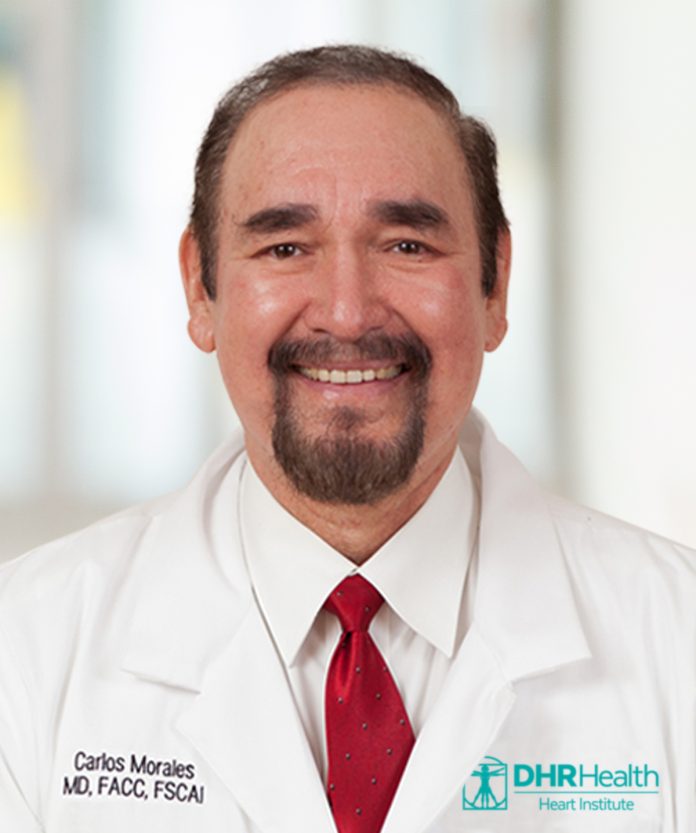
By Carlos Morales, MD, FACC, FSCAI
Director of Structural Cardiology at DHR Health Heart Institute
Heart disease is common in people with diabetes. Diabetes affects every organ and system in the body, and the cardiovascular system is one of the prime targets. Diabetes damages the macro- and microcirculation, producing blindness, heart attacks, strokes, heart failure, kidney disease, peripheral vascular disease, and amputations.
Diabetes is a public-health problem in the Rio Grande Valley, as 30% of the people–3 times higher than the rest of the nation–are affected by it.
Genetic, cultural, and behavioral factors explain the high prevalence of diabetes in our community, obesity being one of those factors. For several years, McAllen, Texas, has been named the fattest city in the U.S. due to having the highest share of obese and physically inactive adults.
The best thing you can do for your heart is to keep your blood sugar, as well as blood pressure and cholesterol levels, under control. In the past, we were aware that lowering blood sugar in patients with diabetes was healthy, but not until recently did we realize it would not necessarily decrease cardiovascular risk. A new group of drugs–sodium-glucose cotransport inhibitors (SGLT-2), such as empagliflozin (Jardiance) and dapagliflozin (FARXIGA)–have been found to lower blood sugar in adults with type 2 diabetes, reduce mortality from cardiovascular causes, and minimize hospitalizations for heart failure and kidney failure in patients with or without diabetes or kidney disease.
Cholesterol is important to overall health, but when levels are too high, it can contribute to heart disease. Having poor blood sugar levels can make cholesterol levels worse. Unfortunately, people with diabetes are more prone to have high cholesterol, which increases the risk of heart disease. I always recommend that patients with diabetes speak to their primary care physician or specialist about being placed on statins (rosuvastatin, atorvastatin, simvastatin, etc.), regardless of their cholesterol level, to decrease the incidence of heart attacks.
In addition to prevention, there are new interventional techniques to take care of people with already established cardiovascular complications. If you have questions regarding your heart health or would like to speak to one of our experts, please contact the DHR Health Heart Institute at (956) 362-8340 to schedule an appointment.




